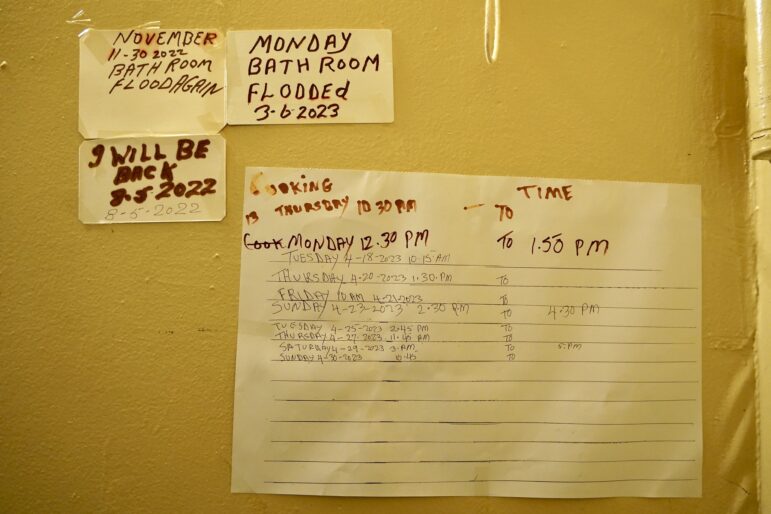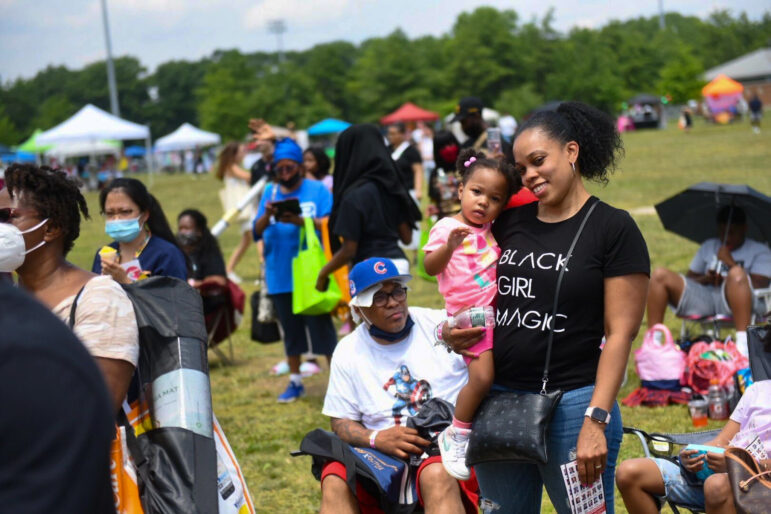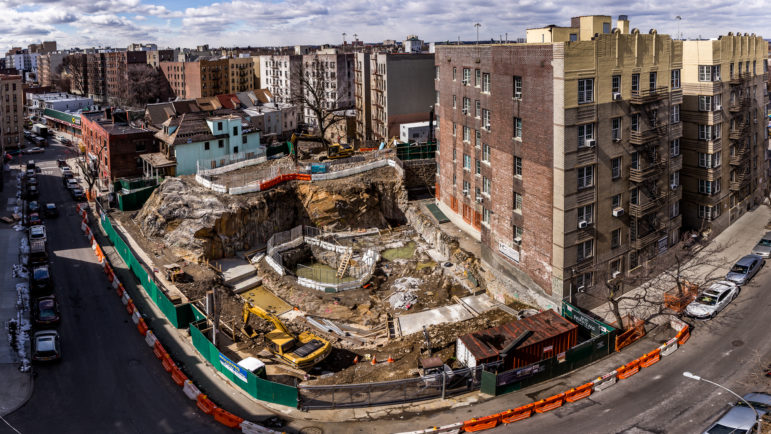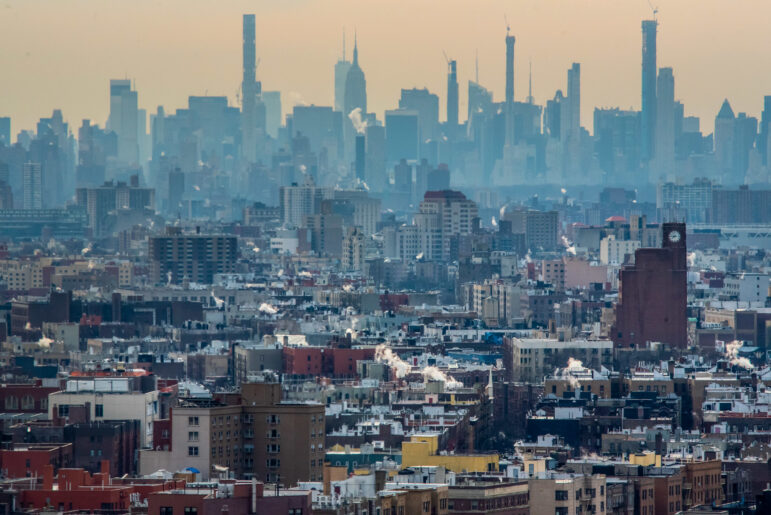
Photo by: Adi Talwar
This Brooklyn building was listed on a site advertising short-term rentals.
Two years ago, tenant advocates and hoteliers came together to praise a New York State law clarifying the ban on most rentals lasting less than 30 days. The measure closed loopholes that had prevented hotels operating out of residential buildings from being shut down, and was touted as a long-needed boost to residential protections. But over a year after the law went into effect May 2011, tenants and housing lawyers have yet to see big changes.
In 2011, the Mayor’s Office of Special Enforcement, which responds to complaints about illegal hotels, issued 1,897 citations–three times the number issued in 2010. Ninety-six percent of them were issued after the law went into effect May 2011. Building owners who rent out residential buildings for less than 30 days can be fined $800 to $2400 per citation, and one incident of illegal hotel use can result in multiple citations, adding up many thousands of dollars.
While citations are up, the law doesn’t appear to be deterring would-be hoteliers.
“We still get the same complaints about [the] same illegal hotels,” says Susan Stetzer, district manager of Manhattan Community Board 3, which encompasses the East Village, Lower East Side and Chinatown. “The new law seems to have no effect.”
’12 kids in a room’
For eight years, Vivian Riffelmacher had been living in Dexter House, an SRO at 345 West 86th Street. In 2004, the building’s owner installed bunk beds in some rooms and began using them as hostels. “Suddenly, every weekend we’d have 10, 12 kids in a room, getting drunk and screaming – and every weekend it was a different bunch of kids,” says Riffelmacher. She moved out in 2009.
“The Mayor’s Office of Special Enforcement – we’ve very grateful they exist,” says Vivian Riffelmacher, a member of the West Side Neighborhood Association, “but this problem is so big it’s hard for them to catch up.”
While just over 50 million tourists visit the city every year, only 37 percent – approximately 18 million – stay in hotels, according to NYC & Co, leaving plenty of tourists to go around. And the market is responding. A search on Airbnb, a four-year-old website that allows users to rent and search for “unique” vacation accommodations, shows 14,000 rental listings in all five boroughs. A “private and sunny” room in Washington Heights rents for $60 a night; an entire apartment goes for $95 a night in Elmhurst or $120 in Bushwick. (On the other end of the market,this luxury villa in Staten Island rents for $1,077 a night).
Unlike older vacation rental websites, Airbnb and a younger competitor, Roomorama, allow users to rent a room instead of an entire apartment. At least some New Yorkers have used these sites to decrease their own share of the rent. A few have started businesses renting out multiple apartments for which they hold the lease.
Fines don’t sway some
Robert manages a prewar East Village apartment used exclusively to host vacationers, which is occupied, by his estimate, four nights out of five. He freely admits the practice is “basically illegal,” but isn’t concerned. “The worst thing that happens is we get fined, so from a financial standpoint it’s worth the gamble,” he said. (Since the law went into effect, however, he no longer advertises on Craigslist; like many of the sources for this story, Robert asked his last name be withheld.)
Radiyyah, a Brooklyn resident and mother of two, says being able to rent a spare apartment changed her life. A year ago, she left a “miserable arranged marriage” carrying eighty thousand dollars in student loan debt, when a family member’s trip outside the country left her with a vacant apartment for a year. Initially, “all [I] wanted was some savings in case of emergencies,” she says, but quickly fell in love with the practice, and now even hopes to open a bed-and-breakfast upstate.
Adding to the complexity is the law’s penalty structure, which fines building owners, not leaseholders, for infractions – regardless of who’s actually responsible for renting out a unit. “There seems to be a double standard,” says Frank Ricci, director of government relations for the Rent Stabilization Association, a landlord advocacy group. “Nobody seems to mind if a tenant does it.”
But it’s very rare for a tenant to sublease an apartment without the landlord’s knowledge or tacit approval, says housing organizer Tom Cayler, who chairs the West Side Neighborhood Alliance’s illegal hotel committee. Cayler points out that most leases, be they in rent-stabilized units, condos or coops, already preclude hotel use, and the recent legislation only clarified what has long been law.
A question of harm
While subletting for a month or more is usually legal, doing so profitably isn’t. According to Airbnb CEO Brian Chesky, New Yorkers who use the site can earn an average of $20,000 a year – a “tremendous mistake,” according to housing lawyer Stephen Dobkin. Dobkin has represented renters facing eviction for subletting their apartments illegally.
(Renting a room, on the other hand, was and remains perfectly legal.)
The RSA argues that hotel-type units effectively subsidize long-term tenants in SROs and rent-stabilized buildings, whose operation costs, according to Ricci, have outpaced permitted rent increases. (Tenant advocates, who usually oppose annual increases in stabilized rents, dispute that contention.)
But for Riffelmacher and many long-time renters, a steady stream of transitory residents undermines neighborhood stability. Landlords stand to profit much more by charging for the night, and use “the unsavory atmosphere as a weapon against renters.” She adds, “If there wasn’t a strong barrier between commercial and residential housing, there wouldn’t be housing left in the city.”








